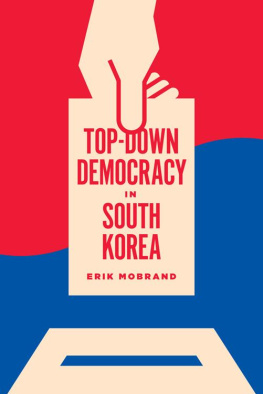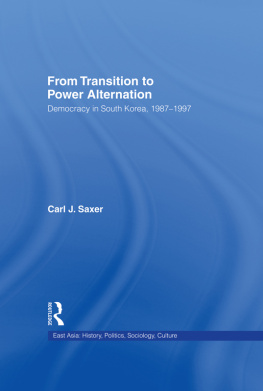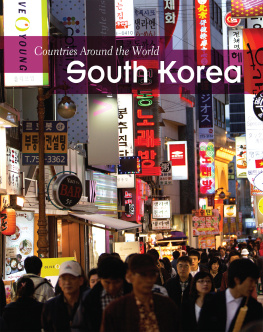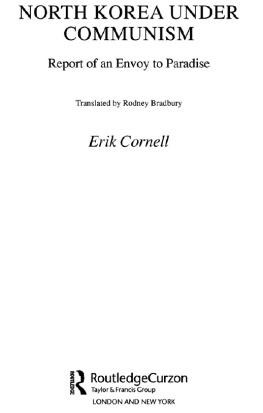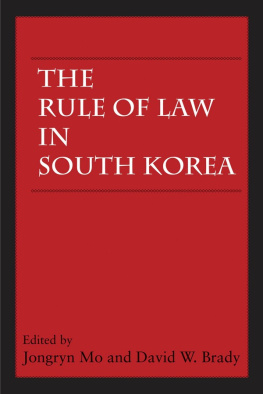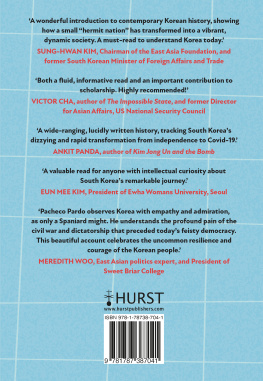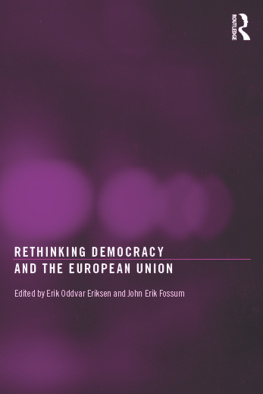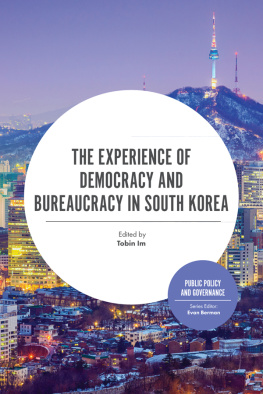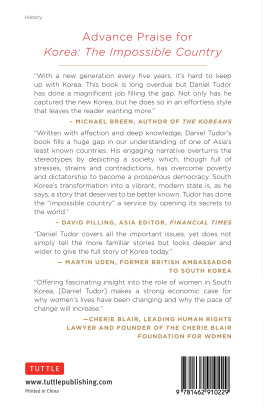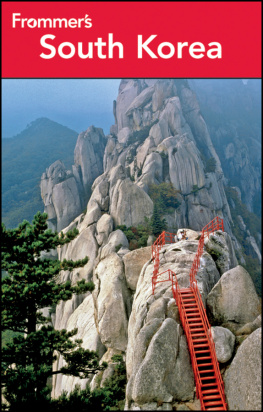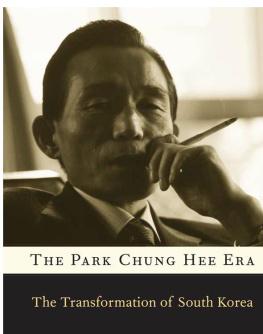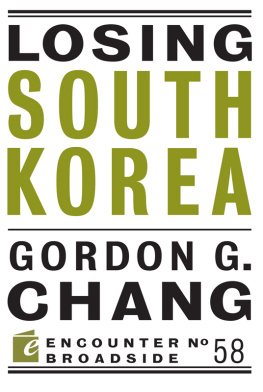Erik Mobrand - Top-Down Democracy in South Korea
Here you can read online Erik Mobrand - Top-Down Democracy in South Korea full text of the book (entire story) in english for free. Download pdf and epub, get meaning, cover and reviews about this ebook. year: 2019, publisher: University of Washington Press, genre: Politics. Description of the work, (preface) as well as reviews are available. Best literature library LitArk.com created for fans of good reading and offers a wide selection of genres:
Romance novel
Science fiction
Adventure
Detective
Science
History
Home and family
Prose
Art
Politics
Computer
Non-fiction
Religion
Business
Children
Humor
Choose a favorite category and find really read worthwhile books. Enjoy immersion in the world of imagination, feel the emotions of the characters or learn something new for yourself, make an fascinating discovery.
- Book:Top-Down Democracy in South Korea
- Author:
- Publisher:University of Washington Press
- Genre:
- Year:2019
- Rating:5 / 5
- Favourites:Add to favourites
- Your mark:
- 100
- 1
- 2
- 3
- 4
- 5
Top-Down Democracy in South Korea: summary, description and annotation
We offer to read an annotation, description, summary or preface (depends on what the author of the book "Top-Down Democracy in South Korea" wrote himself). If you haven't found the necessary information about the book — write in the comments, we will try to find it.
Top-Down Democracy in South Korea — read online for free the complete book (whole text) full work
Below is the text of the book, divided by pages. System saving the place of the last page read, allows you to conveniently read the book "Top-Down Democracy in South Korea" online for free, without having to search again every time where you left off. Put a bookmark, and you can go to the page where you finished reading at any time.
Font size:
Interval:
Bookmark:
KOREAN STUDIES OF THE HENRY M. JACKSON SCHOOL OF INTERNATIONAL STUDIES
Clark W. Sorensen, Editor
KOREAN STUDIES OF THE HENRY M. JACKSON SCHOOL OF INTERNATIONAL STUDIES
Over the Mountains Are Mountains: Korean Peasant Households and Their Adaptations to Rapid Industrialization , by Clark W. Sorensen
Cultural Nationalism in Colonial Korea, 19201925 , by Michael Edson Robinson, with a new preface by the author
Offspring of Empire: The Kochang Kims and the Colonial Origins of Korean Capitalism, 18761945 , by Carter J. Eckert, with a new preface by the author
Confucian Statecraft and Korean Institutions: Yu Hyngwn and the Late Chosn Dynasty , by James B. Palais
Peasant Protest and Social Change in Colonial Korea , by Gi-Wook Shin
The Origins of the Chosn Dynasty , by John B. Duncan
Protestantism and Politics in Korea , by Chung-shin Park
Marginality and Subversion in Korea: The Hong Kyngnae Rebellion of 1812 , by Sun Joo Kim
Building Ships , Building a Nation: Koreas Democratic Unionism under Park Chung Hee , by Hwasook Nam
Japanese Assimilation Policies in Colonial Korea, 19101945 , by Mark E. Caprio
Fighting for the Enemy: Koreans in Japans War, 19371945 , by Brandon Palmer
Heritage Management in Korea and Japan: The Politics of Antiquity and Identity , by Hyung Il Pai
Wrongful Deaths: Selected Inquest Records from Nineteenth-Century Korea , compiled and translated by Sun Joo Kim and Jungwon Kim
The Emotions of Justice: Gender, Status, and Legal Performance in Chosn Korea , by Jisoo M. Kim
Buddhas and Ancestors: Religion and Wealth in Fourteenth-Century Korea , by Juhn Ahn
Flowering Plums and Curio Cabinets: The Culture of Objects in Late Chosn Korean Art , by Sunglim Kim
Top-Down Democracy in South Korea , by Erik Mobrand
TOP-DOWN DEMOCRACY IN SOUTH KOREA
ERIK MOBRAND
UNIVERSITY OF WASHINGTON PRESS
Seattle
Top-Down Democracy in South Korea was made possible in part by a grant from the Donald R. Ellegood International Publications Endowment.
 The Korea Foundation provided financial assistance for the publication of this project.
The Korea Foundation provided financial assistance for the publication of this project.
Additional support was provided by the Korea Studies Program of the University of Washington in cooperation with the Henry M. Jackson School of International Studies.
Copyright 2019 by the University of Washington Press
Printed and bound in the United States of America
Composed in Minion, typeface designed by Robert Slimbach
23 22 21 20 19 5 4 3 2 1
All rights reserved. No part of this publication may be reproduced or transmitted in any form or by any means, electronic or mechanical, including photocopy, recording, or any information storage or retrieval system, without permission in writing from the publisher.
UNIVERSITY OF WASHINGTON PRESS
www.washington.edu/uwpress
LIBRARY OF CONGRESS CATALOGING-IN-PUBLICATION DATA
LC record available at https://lccn.loc.gov/2018046901
COVER DESIGN AND ILLUSTRATION : Chris Ferrante
The paper used in this publication is acid free and meets the minimum requirements of American National Standard for Information SciencesPermanence of Paper for Printed Library Materials, ANSI Z 39.481984.
For H.
We cannot conclude that the influence of the democratic formula and the suffrage mechanism is always the same. When circumstances change, the influence may well have quite different results, just as planting seeds may have quite different results in autumn from those that follow in spring.
JAMES BURNHAM, THE MACHIAVELLIANS
In many new polyarchies, particularism vigorously inhabits most formal political institutions, yet the incumbency of top government posts is decided by the universalistic process of fairly counting each vote as one. This may sound paradoxical but it is not: it means that these are polyarchies, but they are neither the ones that the theory of democracy had in mind as it grew out of reflection on the political regimes of the global Northwest, not what many studies of democratization assume that a democracy should be or become. To understand these cases we need to know what games are really being played and under what rules.
GUILLERMO ODONNELL, ILLUSIONS ABOUT CONSOLIDATION
Contents
Preface
When I mentioned to a Korean colleague that I was writing a book about democracy in his country, he joked that it must be a short book. His retort alludes to a criticism of the countrys politics. What could Koreans possibly know about democracy? After all, this line of thinking suggests, they have little experience sorting out what democracy is and learning how to do it. Scandals, corruption, and protests are staples of political life in South Korea that suggest a society fumbling to grasp democracys meaning.
This way of thinking is common in writing about South Korea, as well as discussion of any newer democracy. Democratic debutants are situated along a path traversed by veteran democracies of the West. Successes in a peripheral country are attributed to the power of democracy. Troubles are chalked up to failure to fully assimilate democratic practices. Any meditation on democracy based on thinking about a place like South Korea is then limited to a study of democracy within the boundaries of that context.
Actually, most of us are still fumbling with democracy. That is probably because democracy is not mathematics, not a subject that can be mastered at school; it is a mode of politics. Koreans fumble no more with democracy than do Americans or British or French or Japanese. For nearly three decades, the country has met the widely accepted criteria of a functioning democracy: the state protects basic civil and political rights (though imperfectly), and it selects top leaders through mass multiparty elections. South Korea has as much ownership of democracy as does any country.
If Koreans have a right to say what democracy is, then we can possibly learn something more generally from South Koreas democratic experience. The context of South Koreas democracy, in a postcolonial state on a peninsula still riven by Cold War politics, is not the same as the contexts of many other democracies. But politics always happens in some context, and there is no scientific way to privilege one context over another. To better understand democracy, we should examine how it operates in a variety of societies. A truly global political science, far from seeking universal laws based on concepts that stretch to the point of breaking when traveling too many places, can draw attention to and learn from the worlds real diversity. This book is offered in that spirit. It is not about democracy in Korea, which seems to imply democracy limited to Korea; it is about both democracy and Korea.
The tensions inherent in democracy are at the heart of the analysis in the following pages. The top-down dimension to representative politics is a long-standing concern in democratic theory. To draw attention to oligarchic aspects of South Koreas politics is not to criticize the countrys democracy, nor to say that all politics there is top-down (far from it!), but rather to place ideas developed from thinking about this corner of the world into dialogue with existing ideas about democracys contradictions.
This book is itself also the product of learning from different parts of the world. Social science ideas are not generated in a vacuum. Where one sits can shape the questions one asks and how one thinks. I am fortunate to have had opportunities to spend long periods of time in fascinating places where my mind could be stimulated through conversations with people of diverse backgrounds. I began this book in Singapore, perhaps not the likeliest of places to write a book on democracy. There I found myself thinking about Korean politics in relation to other Asian societies. Sitting with Southeast Asianist colleagues over lunch, or reading the regional news on the bus, my mind wandered to South Korea. Because where one lives informs ones priorities and concerns, being far from the main production sites of English-language scholarship provides expanded chances to encounter and explore less-worn lines of inquiry. Here is the main benefit to working in Asia while doing Asia research: it is not the proximity to fieldwork sites nor the access to local expertise, but the possibility of stumbling upon and developing fresh ways of thinking about social problems. As a student of Korea living in Southeast Asia, I found wonderful opportunities for fruitful stumbling.
Next pageFont size:
Interval:
Bookmark:
Similar books «Top-Down Democracy in South Korea»
Look at similar books to Top-Down Democracy in South Korea. We have selected literature similar in name and meaning in the hope of providing readers with more options to find new, interesting, not yet read works.
Discussion, reviews of the book Top-Down Democracy in South Korea and just readers' own opinions. Leave your comments, write what you think about the work, its meaning or the main characters. Specify what exactly you liked and what you didn't like, and why you think so.

